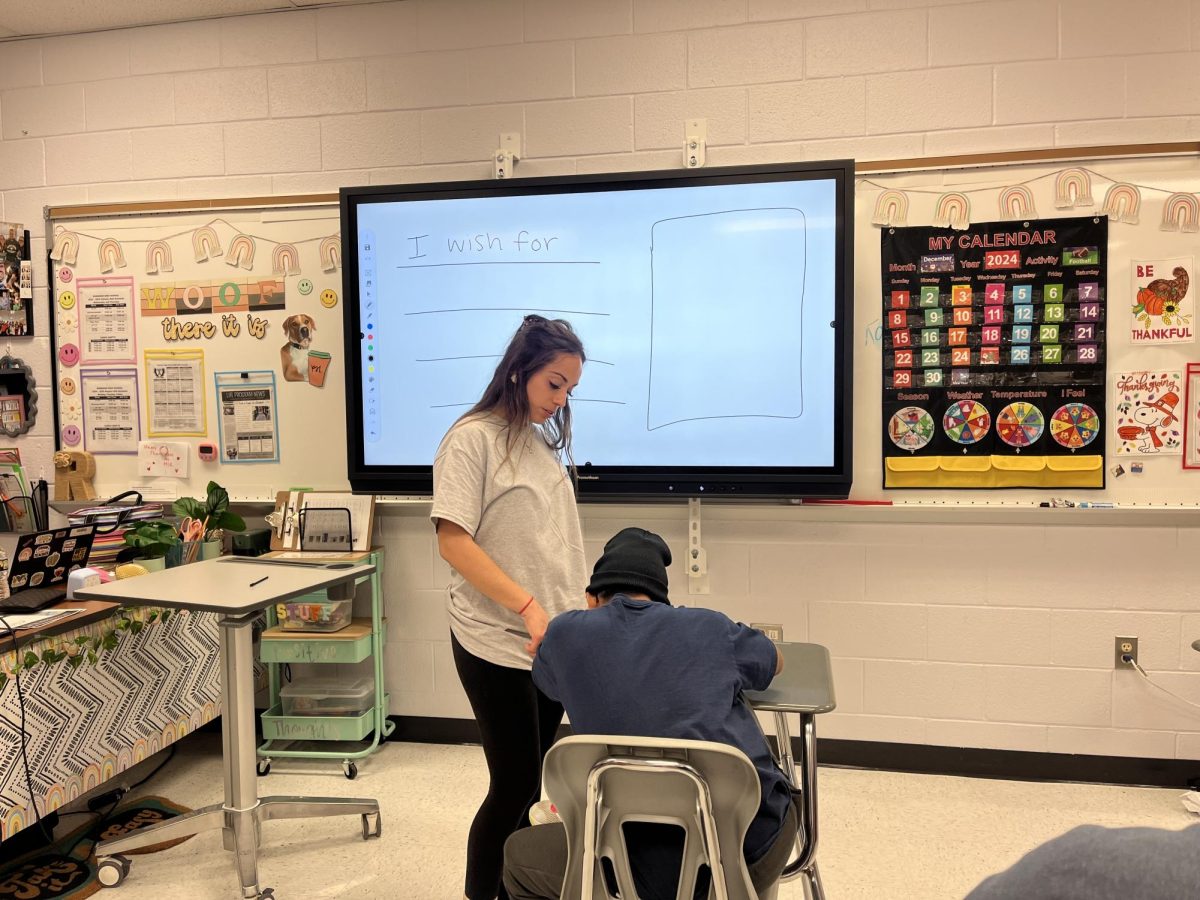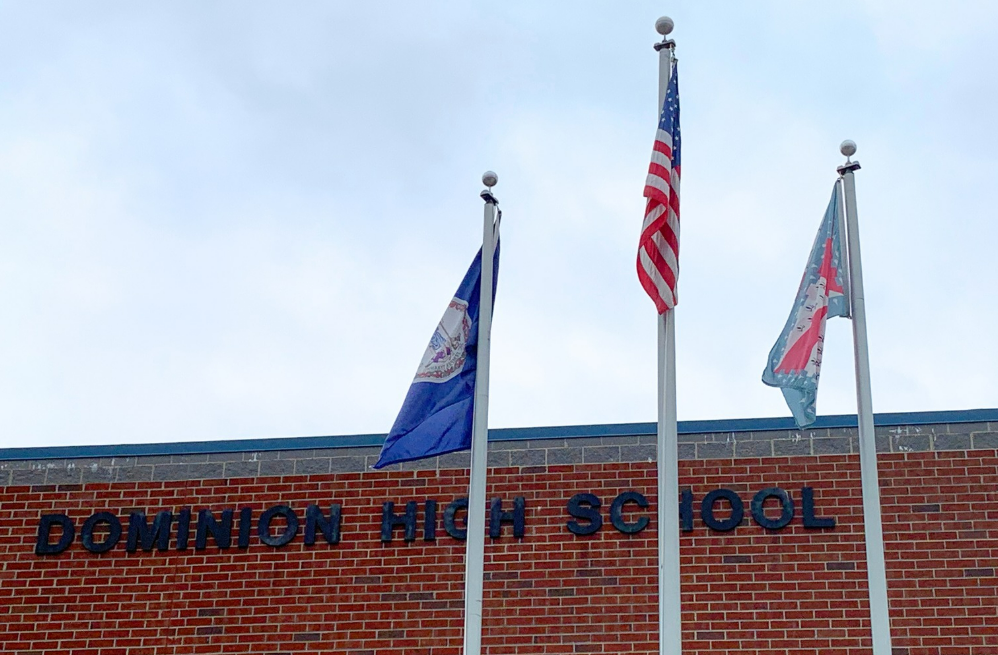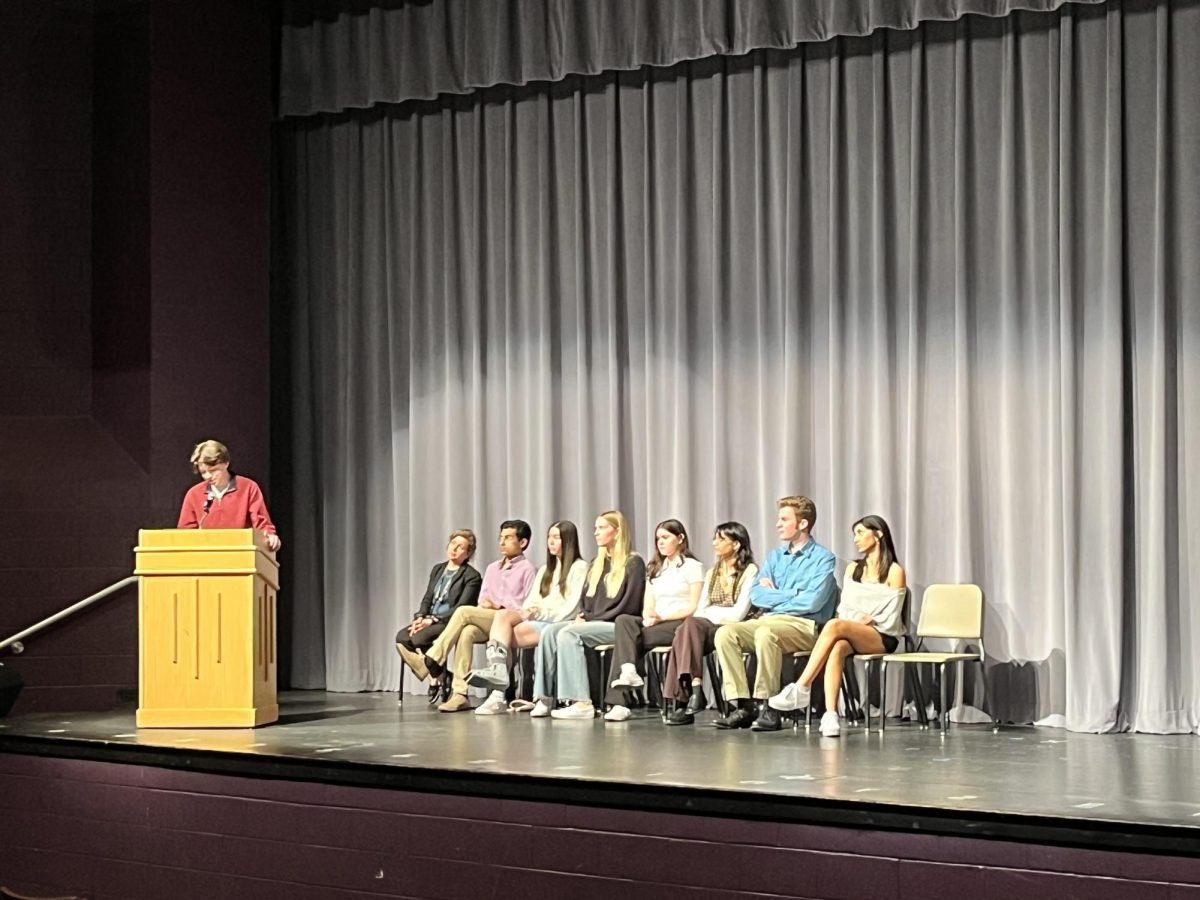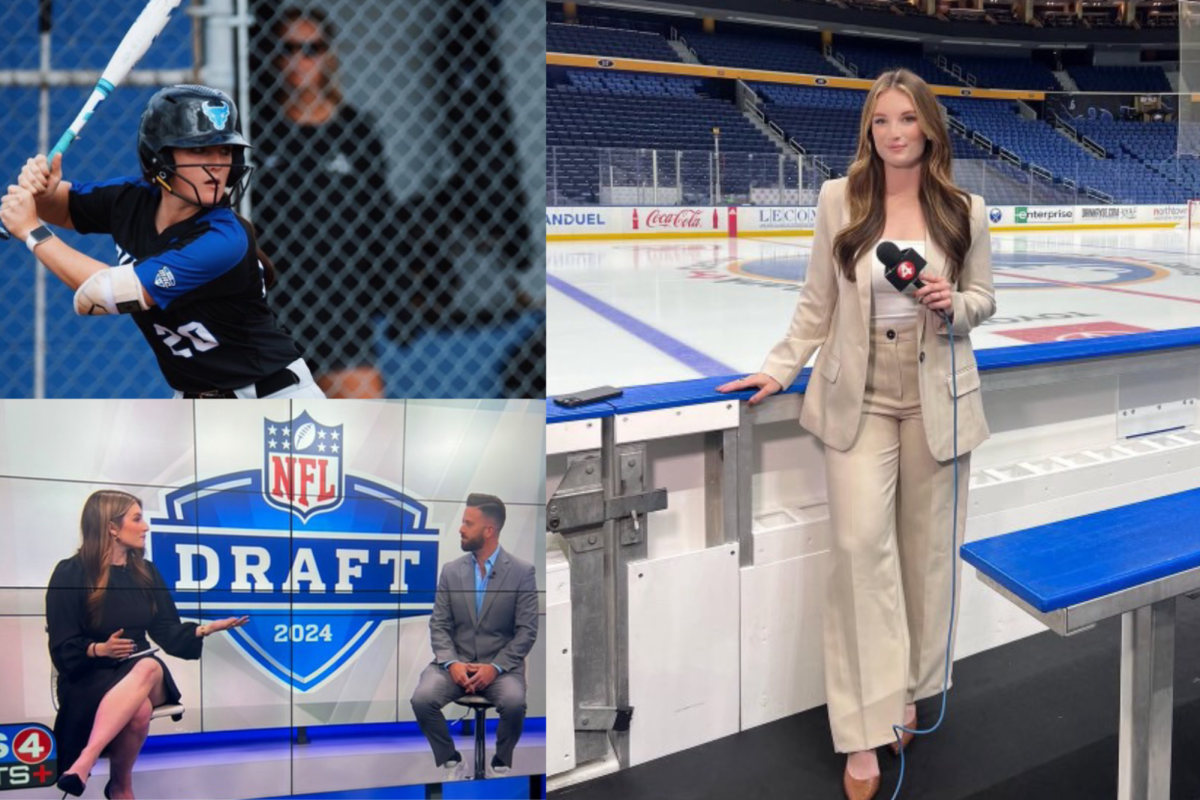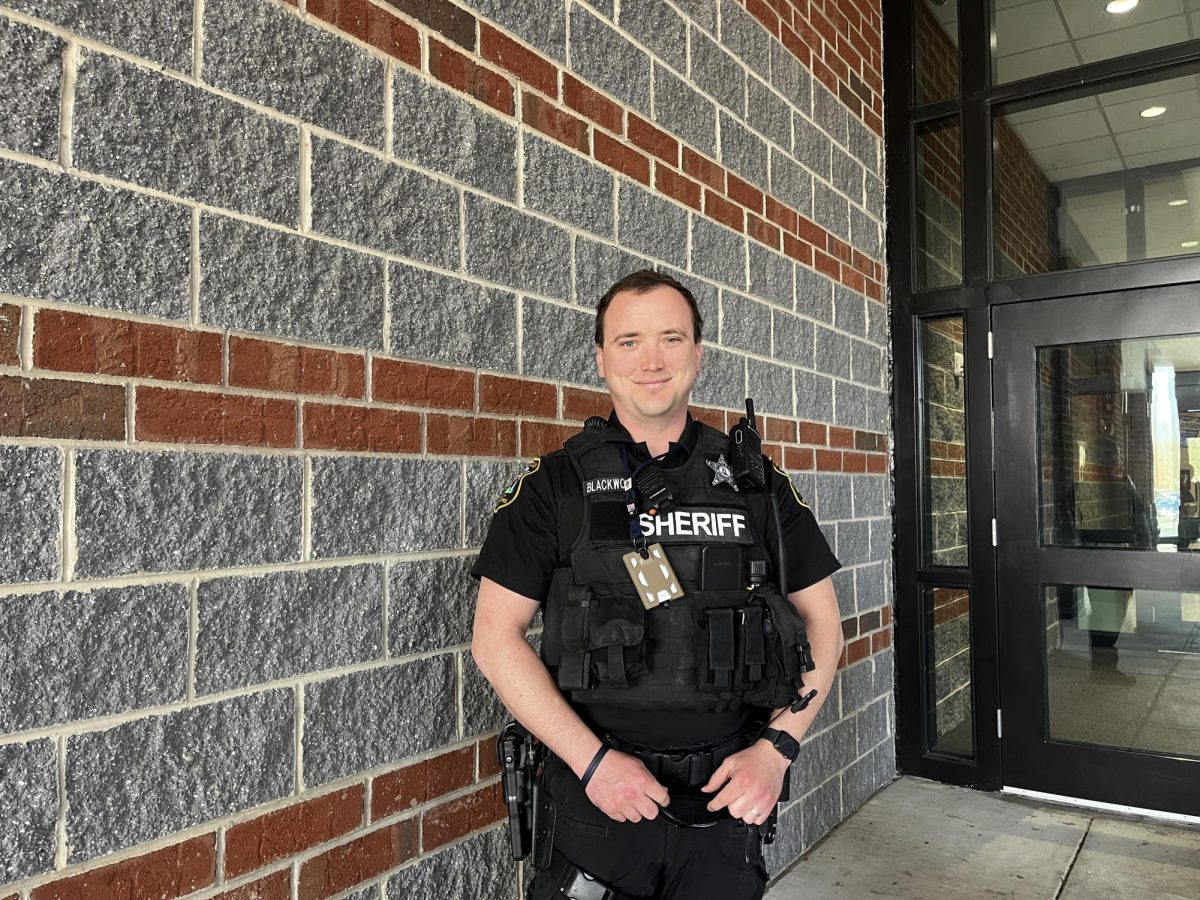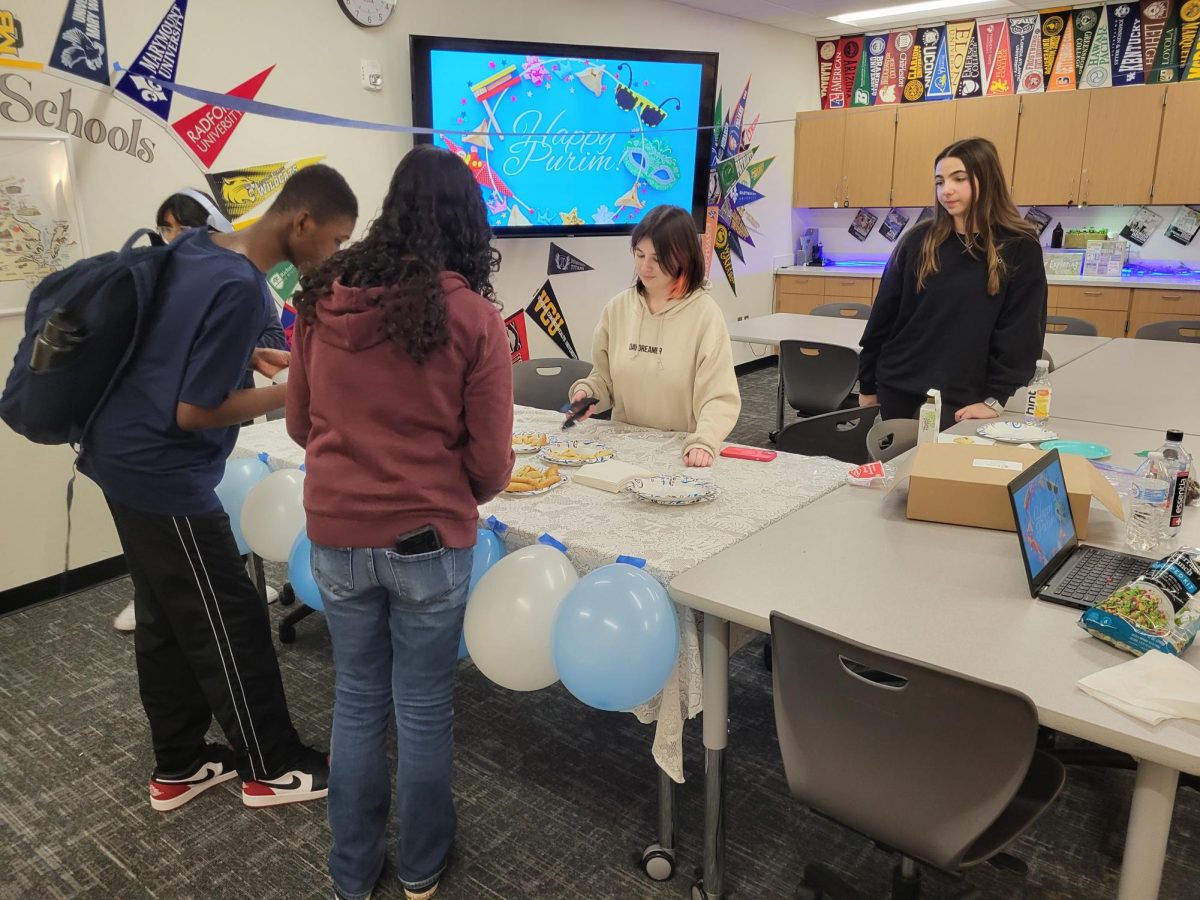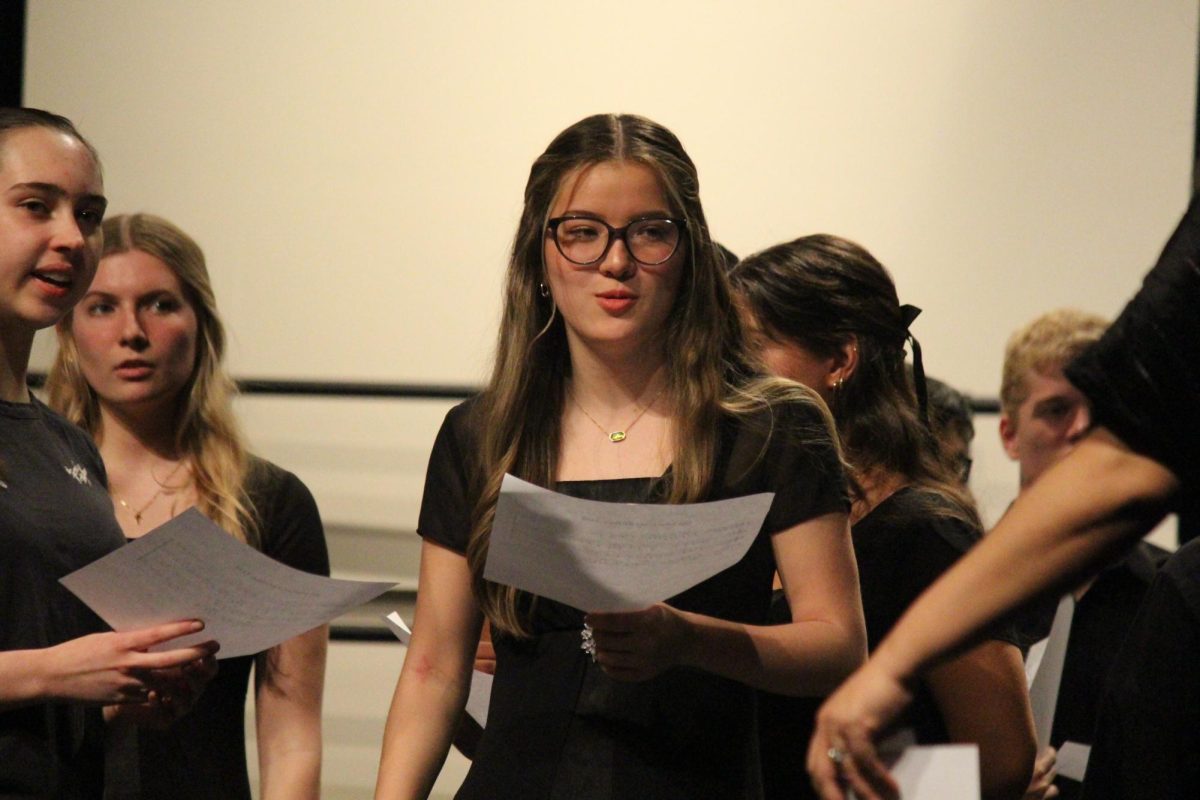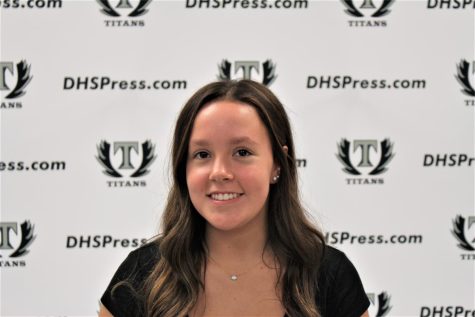What is your role here at Dominion?
I am a special education program teacher here at Dominion High School.
What does that look like day to day?
Very different. Every day is a little bit different. My day typically starts with a regular class. My science and history classes are typically at the end of the day, and then my community based instruction and basics, those classes are more in the middle of the day, but it varies on the levels of the students.
What classes do you teach? How do those differ from a student outside of the LIFE programs schedule?
The difference is that we incorporate less electives. They do a lot more life skills and basic skills classes. We also have a CII class, which is community instruction, another class that I teach. I specifically teach science history, and then community instruction and independent living. Each class is a little bit different, and it all has to be individualized and tiered to those levels. Our students [are in] three groups, and they’re grouped based on their abilities so that they’re with their peers and they’re all accessing the same thing. We have our own curriculum that we follow for that, and it’s all kind of geared towards their abilities, but it all has to be individualized, because each kid is just so different.
What’s your favorite subject to teach?
I think community instruction, I love it. At my old school, I taught [community instruction] for four years which is employment readiness. I just find it so meaningful. I have a sister with autism, and she’s 29. She works at a public school here in Loudoun County as a TA for enhanced autism kids. It’s pretty cool how the education and help that you get can set [you] up for success regardless of what your ability is.
What led you to teaching? Has this always been a dream or a goal?
Definitely not, I did not always want to teach. I actually wanted to go into forensic psychology. I decided that there’s a lot of traveling and too much in person [work] involved. There is a lot in person here too but there was a lot of travel, overnights, and late nights. I want to have a family and it just wasn’t going to be the kind of job where I could have that. I decided to go into teaching by accident. I was just going to sub after college [but] they hired me to be a teacher. It was an administrator that actually knew me from when I was in high school [that] brought me on. I did know that my backup would be special ed just because of my sister. I worked at a daycare for many years [and worked with] a kid with autism there. I had no experience in it, but I taught him how to talk, and that was my [realization that] I’m kind of good at this. It was an accidental path, but I’m grateful to be here.
Where did you go to college? What degree did you get?
I went to James Madison University for my undergrad, and then I got my master’s at George Mason.
What did you major in?
[My] undergrad was psychology and then my master’s degree is actually special education. I got my master’s degree when I started teaching so I would teach all day and then I had night classes until about 10 o’clock.

What did you do before teaching at Dominion?
I was over in Fairfax County. I taught at Westfield High School and then I taught at Cub Run Elementary School for a year, and then made the switch over to Loudoun. I really made the switch just because it’s where I live. But I’ve always [taught] special ed all the years, this is my eighth year now.
What do you think about the LIFE Program and the opportunities for students to work in the community?
I think it’s awesome and there’s a lot of opportunities for them to work in the community. My class specifically has gone a lot to the local church and we [organize] the food cans. We also have students that go out to the coffee shop right down the road, Ridgetop. I think as Loudoun grows there’s hopefully going to be more opportunities for [them]. It is done differently here than it is in Fairfax, but not in a bad way necessarily, but there are a lot of opportunities. I do wish that we had more days to go out, because it’s not every community instruction time [that we go out]. At my old school, it was scheduled at the beginning of the year, every class, everybody went out [into the community]. I do wish that we had a little bit more of that, but I think Loudoun is still growing in that sense and figuring that out. Fairfax is a much older district, so their size is double the size. Our life program is about 20 to 22 students. In Fairfax, the school that I was at had 55 [students].
What is your favorite part about special abilities Awareness Week? Is there anything else students should know about it?
I think just acknowledging it is the biggest thing: acknowledging why we do it. To me, Special Abilities Awareness Week is taking in the differences that everybody has and accepting them and appreciating them. Because I think sometimes even we can feel like our differences hinder us but we [should] realize that this is actually [a] superpower. I’ve always had ADHD [and a] therapist actually changed my mindset into thinking that it was a superpower. When I started really changing my mindset about that, it made me channel that difference to be like, you know, this difference is awesome, and I need to accept it and own it. I think this week really highlights that part of everybody, just taking in your differences.
How can students get involved? Are there volunteer opportunities coming up?
There’s United classes that specifically do have peer mentors and [are guided] by the peer mentors. They make the lessons for them and work with the students. You can always pop into our rooms, L615, L313, and L311 are our free classrooms that we have those students in, and we’re always happy to take [students] in to volunteer in the classroom. Sometimes we have the BFF club after school. Honestly, the best way to get involved is just interacting with our students. They typically have D lunch so if you’re in D lunch and you can just go around say hi to them, interact with them, that’s the biggest way that you make a difference. It really makes them so happy, puts a smile on their face, if you have them in your advisory class, same kind of thing, talk to them, get to know them, and see what they enjoy. We have students that might not be verbal, but even just you acknowledging their presence, acknowledging what they’re doing, you don’t realize how much they receive that and it really makes that difference.
Is there anything else I should know about this week or about you?
It’s a really special week to acknowledge everybody’s differences, accept them and show them that it’s okay to own them. That’s the biggest thing, you’re different and I love that about you.



